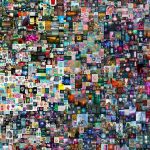July 20, 2017
by Aesthetics for Birds
0 comments
Google Translate’s Emergent Poetry Some of you will be familiar with computer poetry, poetic compositions generated by computers using algorithms. Some of you may even be familiar with computer prose, as the book The Policeman’s Beard is Half Constructed (text here). There are lots of things to say about this. Who’s the author? Is it really poetry? And what does it say if computer poetry passes the Turing test? Last week, I stumbled upon something new in this neighborhood, care of Google Translate. You might think this would be generated by inputting something funny (but promising if you think about it) like assembly instructions or political speeches–or even something translated into a different language, then translated back. Instead, this Google Translate poetry takes as input a single, repeated Japanese hiragana character. As you can see above, the returns are surreal and delightful. (For all of these, I’ve used ‘ke’, け.) See here and here for … Continue reading →



